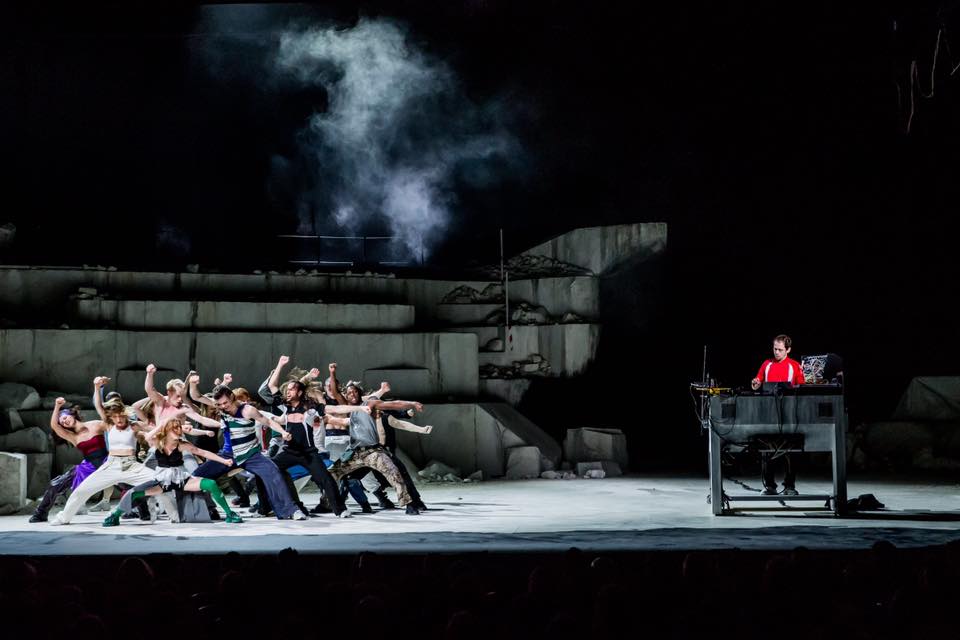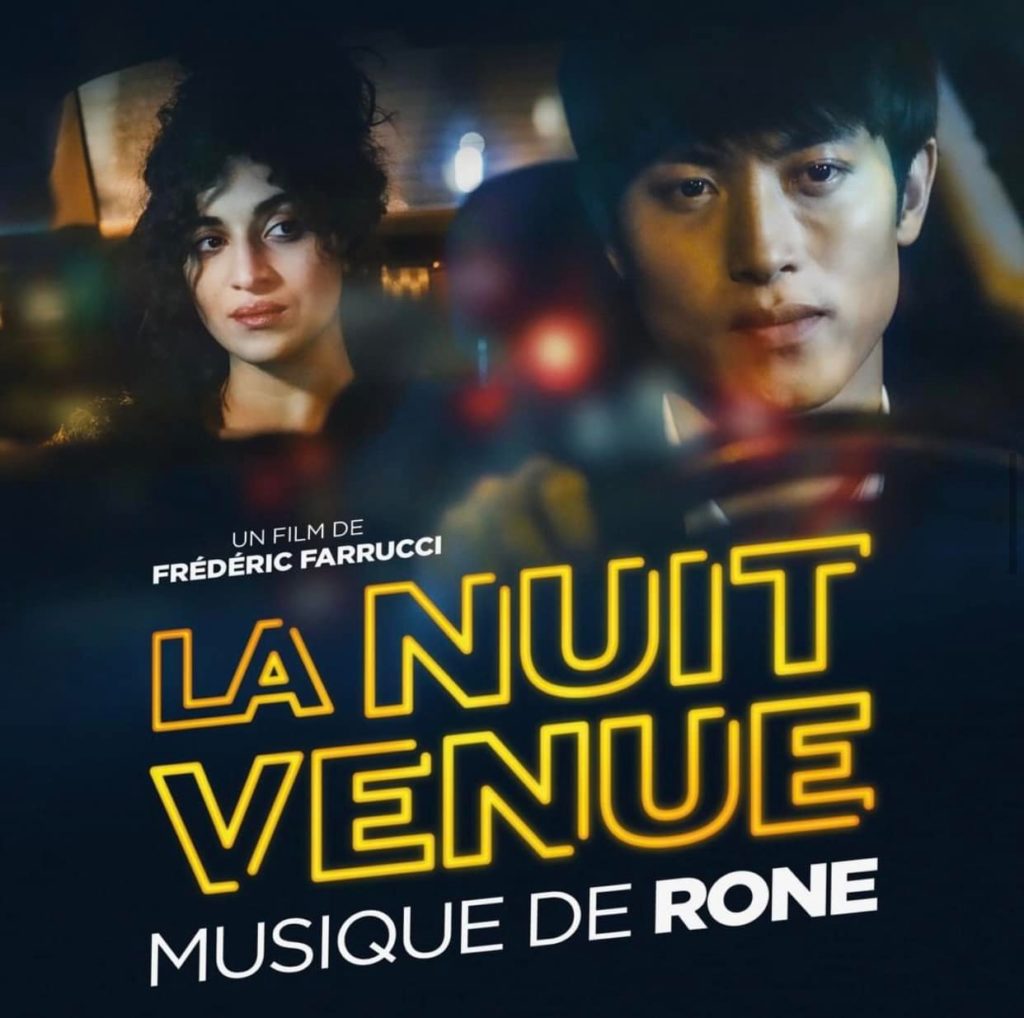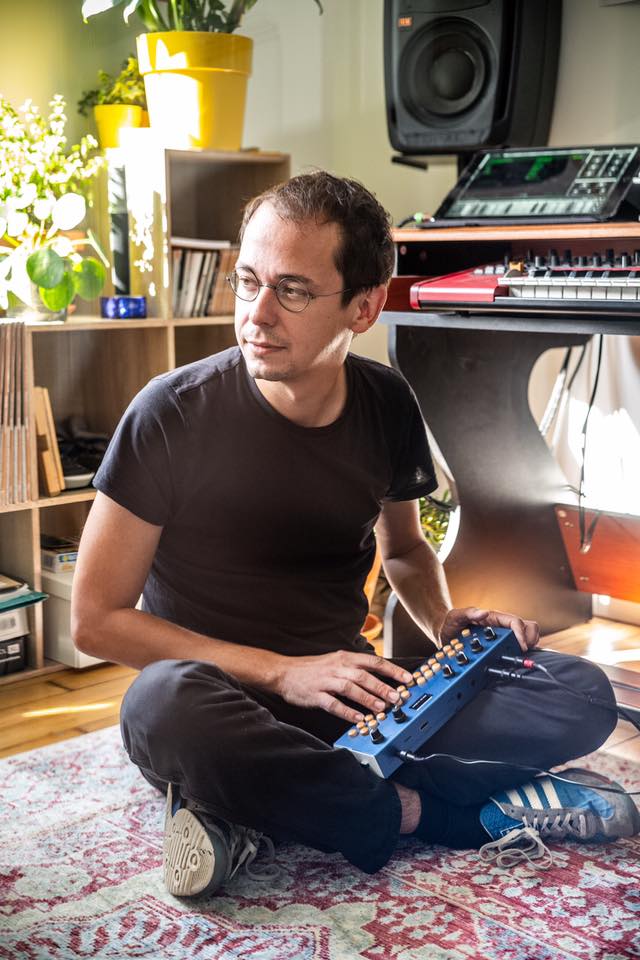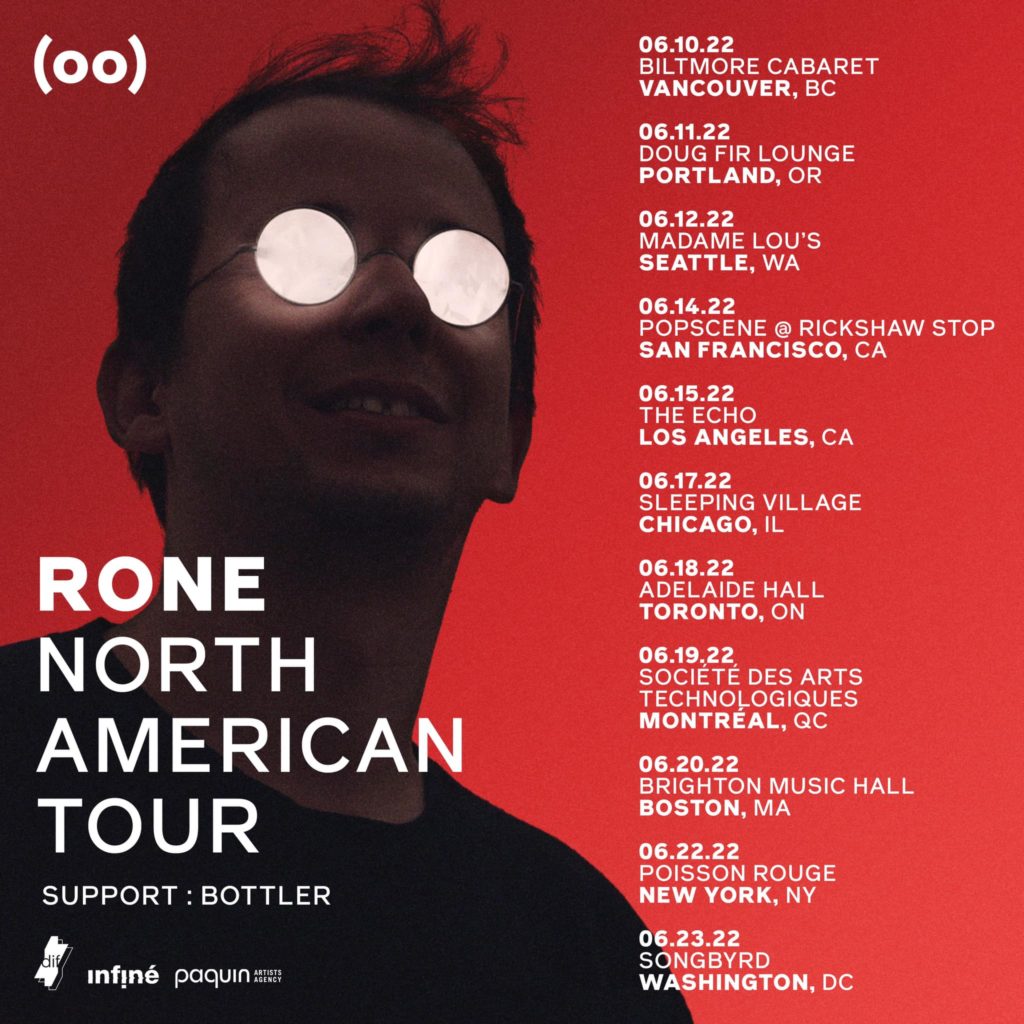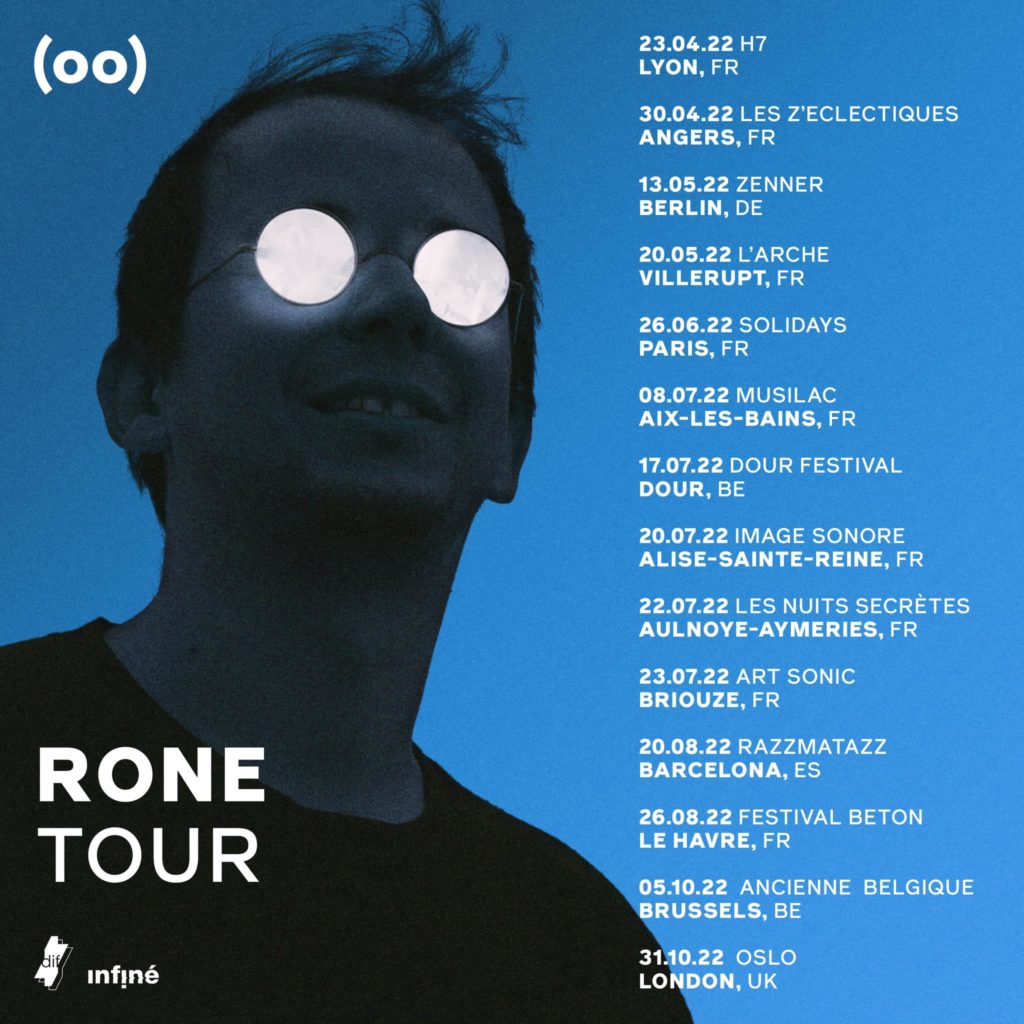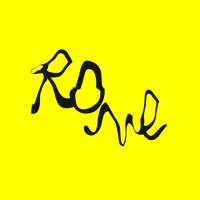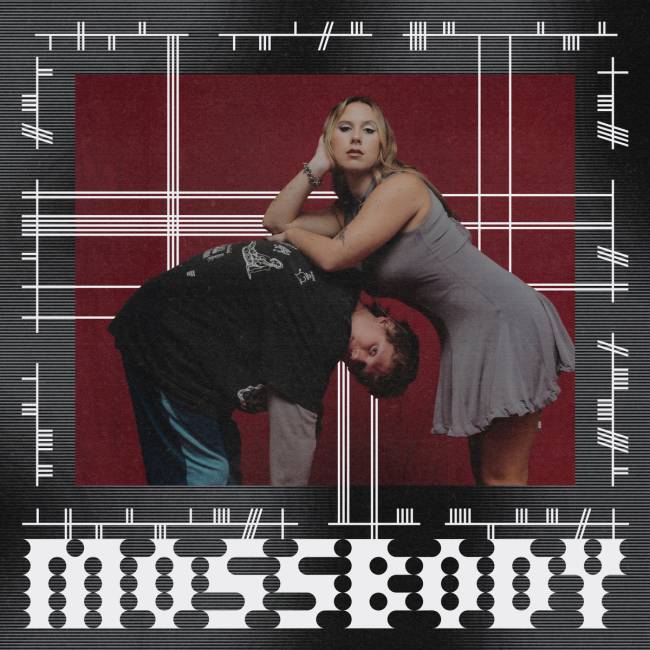There is a lot to say about French electronic producer and composer Rone, who constantly strives to push the boundaries of his own sound and creative work.
Starting his music career while studying to become a filmmaker, Rone was spotted by the French label InFiné on which his debut EP Bora got released in 2008. The following success and acknowledgement from both media and fellow artists inevitably made him choose the music ground to firmly walk his path up to numerous albums and EPs, world tours and several awards, including the recent Cesar award for Best Film Music.
Rone has shown an ability to combine his music with other art forms such as literature with Alain Damasio, photography with Stéphane Couturier or contemporary dance with the collective (La)Horde. He has composed the soundtracks of movies by Vladimir Mavounia-Kouka, Frédéric Farrucci and Jacques Audiard. In 2015, he was the first musician to release a VR videoclip for his track “Quitter La Ville”. In addition, he composed the soundtrack of the first French VR fiction I, Philip by Pierre Zandrowicz. His latest endeavour, found him composing the music for Spike Jonze’s short movie Ghosts, developed in collaboration with (La)Horde.
Amongst Rone’s other talents is the ability to combine art with purpose, using his music to raise awareness on topics such as global warming and the future of our society as a whole. His latest album “Room with A View“, is meant to tackle these issues, merging Rone’s touching compositions with dance collective (La)Horde’s choreography.
We managed to catch up with Rone and get him to discuss all these different endeavours and his remarkable journey, as well as future plans. In this interview, he explains more about his connection to filmmaking and his urge to experiment with sound, while often times collaborating with artists from a totally different music background. He also discusses his music influences and his favourite music gear, as well as other intriguing aspects of his work. I'm more than excited to share all of this with you, so let’s finally dig in!
Stay up to date.
New music and exclusive updates in your inbox weekly.
Hi, Rone! Thank you so much for this interview! It’s an absolute pleasure and honour to have you on board! Where do we find you at the moment?
At the moment I am in my studio in Brittany.
I’d like to start the interview with the story around your monicker; would you mind sharing it with us?
Initially, I wanted to call myself R.one, which is a play on the pronunciation of my first name Erwan. But the graphic designer who made the poster of my first gig made a mistake and forgot the dot, so the poster said Rone. At first, I was annoyed, but then I thought it didn't sound so bad, so I decided to keep the alias Rone.
I’m also more than curious which are your biggest music influences?
My influences are really rich and varied. I think I was 7 or 8 years old when I got my first slap in the face by hearing a Jean-Michel Jarre piece. Then during my childhood and teenage years I was more influenced by what my mother listened to, she bought a lot of records. That's where I discovered jazz, classical, rock, and a lot of film music. I feel that this childhood surrounded by music really opened my ears. In my late teens, I discovered electronic music, especially the experiments of a label like Warp. It intrigued me and gave me the desire to use machines. A world opened up to me. At the same time I also started to go out in clubs, that's where I discovered more dancefloor electronic music, like Laurent Garnier or Detroit techno. If I had to name three artists who strongly influenced me, I would say Miles Davis, Eric Satie and Aphex Twin.
My first encounter with your music was when I heard “Bye Bye Macadam”. I remember exploring the city I had just moved to, wandering around, observing everything with the eyes of a free bird. I had the song on repeat; it was the perfect soundtrack for this kind of experience. To me your music perfectly illustrates movements, everything looks choreographed and it simply makes one experience his presence in a certain moment in a very existential way. I’m very curious if you see some imagery in your head while creating music?
Wow thanks, the way you experienced my music means a lot to me. It's funny, when I compose my music I'm really my first audience, I don't think too much about others, everything makes sense when I share it. I think that what happens in my head is more abstract than images. I would say that what I'm trying to put into shape are more emotions, energy, memories, or those dreams that mark you even if you don't remember them precisely.
I know that before going for music, you studied to be a filmmaker. How and why did you make the switch?
When I left high school I was lost, but I had the intuition that I wanted to be an artist because I felt it would be a good way to express myself, being shy by nature. I chose to study cinema because I watched a lot of films. At the same time I was already doing music, but without any ambitions, just for fun. It was the encounter with the InFiné label that accelerated things, and I finally chose music.
You actually went back to the cinema world but this time in order to create movie soundtracks, one of which recently won you a Cesar ( for La Nuit Venue by Frederic Farrucci) How did this comeback happen and how do you like the process of working on film scores, translating images into sound?
I had been meaning to compose film music for a long time, but I was waiting for the right project. Frédéric Farrucci and Jacques Audiard approached me with projects that touched me, and then I realised how much I love composing for the cinema: this exciting sensation when image and music merge. It's a special emotion that I really want to continue to experience.
What's your favourite movie genre and is it the same one which you'd most enjoy making the score for?
I really like a lot of genres, the important thing is that the film moves me, and that can happen with a blockbuster or a small auteur film, whether it's a thriller or a light romantic story.
One of the things that make your music so special is actually your approach and desire to experiment, defying the gravity of electronic music. You’ve also collaborated with artists from various scenes, including rock, hip-hop, classical. What triggers this appetite for sonic exploration? And can you share a bit more on how did these collaborations take place?
I started as a solo artist in my maid's room. Little by little, the possibility of collaborating with great musicians opened up to me, and suddenly my palette of possibilities expanded. That's the beauty of collaboration, it's to go further in the experimentation and learn from the exchange.
Do you have a dream-collab and who would it be with?
I would have loved Miles Davis to play his trumpet on my sound! :-)
Otherwise, I like to work with voices at the moment... so maybe Rosalia, Billie Eilish, Thom Yorke or Frank Ocean...
Do you have a favourite piece of equipment and where does most of the production process happen? Also I’m curious if you’re into modular synthesizers?
My main tools are my Midi keyboard and Ableton. The rest is sound research on different synths, I really like the Nord Lead 4 and the Buchla Music Easel. I like the randomness of modular synths too: letting chance intervene and sometimes coming up with a "happy accident". Almost everything is composed in my studio in Brittany.
You have performed all over the world; is there a location/festival you still haven’t been at and would love to?
Every time I had the chance to play in Eastern Europe, I was very well received. I loved to play at the Sziget festival for example. So if any other great venues or festivals want to invite me...
Apart from your collabs with other musicians, writers and visual artists, you recently started working with French dance collective (La)Horde. Can you tell us how did you get in touch with them and what has this journey been like for you so far? Especially in regards to your latest album “Room With A View”?
For a long time I had dreamed of working with dancers. (LA)HORDE and I had been following each other for a while. When I received the carte blanche from the Théâtre du Châtelet in Paris, it was obvious: the stage is huge, it had to be filled with dancers! I am very proud of the result: a unique experience with 18 dancers on stage.
Can you also tell us a bit about your latest project “Ghosts”, what inspired the story around it and shall we expect some sort of continuation?
Originally it was Spike Jonze who fell in love with the Room With A View video, it inspired him to write a script, he then contacted (LA)HORDE to ask them to direct the film, which I then put to music. So for me, the process was more like a film than a music video: it wasn't my music that was put into picture, but me composing to an existing film. When I think back, it's crazy, along with Michel Gondry and Chris Cunningham, Spike Jonze is a reference, he's part of this generation of directors-videographers-tinkerers that I've been following for a long time.
Your projects approach certain themes/phenomena from an unusual angle, and if one is up for it, some quite philosophical depth could be found in them. The human experience seems to be in the centre of it all, but observed somehow from the outside (in regards to existing as part of a much bigger picture); instead of tackling human existence only from the inside (from the mind and heart of a person). Would you agree with this interpretation and do you think that your music has this kind of philosophical dimension to it?
It's a spiritual dimension, almost mystical. A lot of things are beyond me, there's poetry, philosophy... I don't know because I don't control everything, sometimes I have the feeling of being carried by something bigger than me.
Art can assist us to escape our problems, sorrows or all the issues we're facing as humanity. A lot of artists make positive music which offers this kind of remedy for the turmoiled souls; however, you've chosen to do the opposite and engage your work with topics like global warming, taking a stand.
What makes you combine art with purpose and go beyond the 'good vibes'?
With Room With A View I wanted to address strong themes such as global warming, the massive expansion of species, or the collapse of civilisation. OK, the subjects are not cheerful, but I feel that it is important for me to put meaning into my work, but always by infusing it with hope, to pull it upwards. I want to raise awareness, but without giving lessons.
Greta Thunberg used your track “Motion” for the video “Nature Now”. How did this happen and would you be up for another similar collaboration?
It happened simply: Greta's team contacted me to ask for permission to use "Motion" and I didn't hesitate for a second. Of course, if it were to happen again with other activists, I would be up for it.
Finally, would you like to share with us a bit about your upcoming projects?
Voir Groobe.
I'm still digging my way in film music, I have a few projects but I can't say anything yet...
Apart from that in June I'm touring for 2 weeks in Canada and the US, then there will be some festivals this summer, and in September we'll be doing Room With A View again with (LA)HORDE and the Ballet National de Marseille. In December I'll also be performing my electro-classical project L(oo)ping again with the Orchestre National de Lyon.
